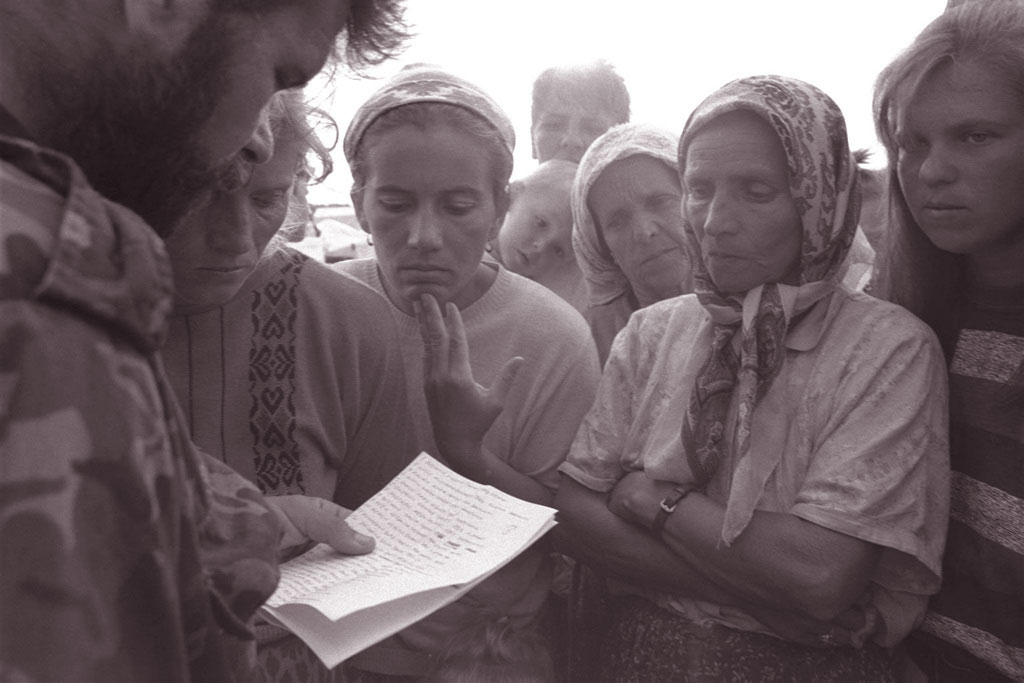International Day of reflection for Srebrenica genocide, 11 July 2024

On May 23, the UN General Assembly adopted a resolution (A/78/L.67/Rev.1) on the Srebrenica genocide, designating July 11 as the “International Day of Reflection and Commemoration of the 1995 Genocide in Srebrenica”, to be observed annually. The resolution condemned any denial of the Srebrenica genocide as a historical event and actions that glorify those convicted of war crimes, crimes against humanity and genocide by international courts.
The massacre in Srebrenica marked one of the darkest chapters of the war that erupted after the breakup of former Yugoslavia. The fighting started in 1992 when Bosnia declared its independence from Yugoslavia following a referendum. The Bosnian Serbs had boycotted the referendum, and when independence was proclaimed, they started a war against the Bosnian government, supported by the Serbian government of Slobodan Milosevic, to obtain the annexation of their region to Serbia.
In the Serb-majority territories, there were many Muslim enclaves against which Bosnian Serb militiamen and Serb regulars raged, practising what has since become known as ethnic cleansing, a term coined by Serb leaders themselves. Muslim villages were systematically destroyed, and their inhabitants were expelled. The aim was to create a homogenous territory where only Serbs lived, which would be easy to annex to Serbia.
Srebrenica and the villages in the Drina valley were one of the main obstacles to this project, and the Serbs had begun to concentrate their militia efforts in the region. Subsequently, the Serbs sieged the town, trying to force the inhabitants to surrender through starvation while conquering and expelling the population from the surrounding villages. In April 1993, the United Nations proclaimed Srebrenica a safe zone in which both sides were to cease military activities and sent a Dutch military contingent there. The resolution was soon violated, on July 11 Bosnian Serb troops under the command of Mladic entered the town; an agreement for the occupation of Srebrenica was quickly reached.
Women, the elderly, and children were loaded onto buses and trucks and transferred to another UN base some tens of kilometres away. Every time a man or boy tried to board one of the trucks, he was stopped and taken to a nearby killing site. They appeared to be random killings but concealed that a short distance away, Serbian militiamen were carrying out what international courts have described as a “planned and coordinated high-level massacre”. The first mass killing took place on July 13, when at least 1,000 Bosnian Muslim men and boys were killed in Kravica. Within seventy-two hours, more than eight thousand Bosnian Muslims were killed in the worst massacre in Europe since the end of the Second World War. In an effort to hide the evidence of the mass executions, Bosnian Serb forces, with the assistance of civilian authorities, exhume bodies from their original graves and rebury them in remote secondary graves.
The mass atrocities perpetrated in Srebrenica led the Security Council to establish an international tribunal for the people responsible for these crimes to stop the escalation of violence and preserve international peace and security. In May 1993, the UN Security Council passed resolution 827, which formally established the International Criminal Tribunal for the former Yugoslavia (ICTY). The Tribunal had the power to prosecute and try individuals on four categories of offences: grave breaches of the 1949 Geneva conventions, violations of the laws or customs of war, genocide, and crimes against humanity. The ICTY was the first international criminal tribunal to try and convict for genocide in Europe; the charges included genocide, murder, extermination, and persecution.
The trial of Radislav Krstic in 2001, a Bosnian Serb army general, made history as the first judgement, of the Tribunal affirming that criminal acts committed in Srebrenica in 1995 constituted, among other things, the crime of genocide. The Trial Chamber found that Bosnian Serb forces subjected the Bosnian Muslim refugees taking shelter in and around the UN compound at Potočari to a terror campaign of threats, insults, looting, burning of nearby houses, beatings, rapes, and murders. In addition, thousands of Bosnian Muslim men and boys were estranged from their families and executed by Bosnian Serb forces at various locations. The Judges of the ICTY were convinced beyond a reasonable doubt that the crime of genocide had occurred in Srebrenica.
United Nations Special Adviser on the Prevention of Genocide, Alice Wairimu Nderitu has expressed her concern over continuous incidents of revisionism concerning atrocity crimes perpetrated during the 1992-1995 conflict, including unabated denial of the Srebrenica genocide and glorification of convicted war criminals. The UN High Commissioner for Human Rights, Volker Türk, welcomed the resolution as “further recognition” of the victims and survivors, and their pursuit of justice, truth and guarantees of non-recurrence.
“Twenty-nine years ago, the United Nations and the world failed the people of Srebrenica. [...] We must combat denial and revisionism and pursue efforts to identify every victim and bring every perpetrator to account. And we commit to continue learning from this unspeakable tragedy and sharing the stories and lessons of Srebrenica”, stated the UN Secretary-General in a message ahead of the remembrance.

